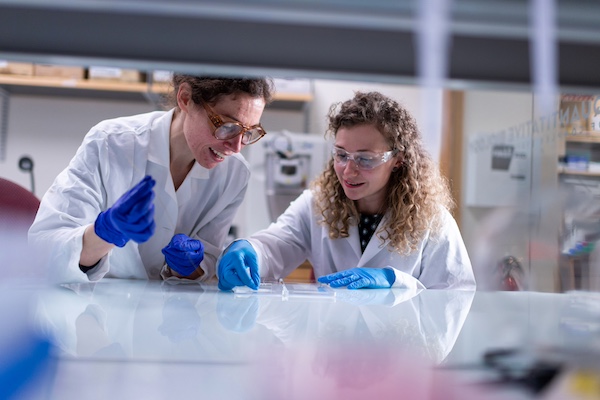A few years ago, a global team of scientists parlayed decades of research into the discovery of the Higgs boson, a subatomic particle considered a building block of the universe. A humble software program called HTCondor churned away in the background, helping analyze data gathered from billions of particle collisions.
Author: Brian Mattmiller
Pagliarini earns presidential recognition for research on mitochondria
Dave Pagliarini, Director of Metabolism at the Morgridge Institute for Research and Associate Professor of Biochemistry at the University of Wisconsin–Madison, has received the U.S. government’s highest honor for scientists in the early stages of their careers.
Melissa Skala: Follow the Light to Better Cancer Treatment
Skala’s research problems focus on cancer detection and treatment, and her expertise in light-based, optical imaging is giving clinicians revolutionary new tools for the fight. Skala will be bringing her talents this summer from Vanderbilt University to the Morgridge Institute for Research and the University of Wisconsin–Madison, as a Morgridge investigator and professor of Biomedical Engineering (BME).
Morgridge, campus partner to power up ‘mass spec’ potential
The Morgridge Institute for Research, as part of its Metabolism Initiative, is working with a University of Wisconsin–Madison team to greatly expand the scope of “mass spec” applications on campus. A new resource housed in the UW–Madison Biotechnology Center brings together a multi-million dollar investment in mass spectrometry tools from multiple sources to form a central repository to tackle large-scale investigations.
Scheufele named to gene editing panel
Dietram Scheufele, professor of life sciences communication at UW–Madison and Morgridge Institute for Research affiliate, will serve on a national panel examining the implications of human genome editing.
